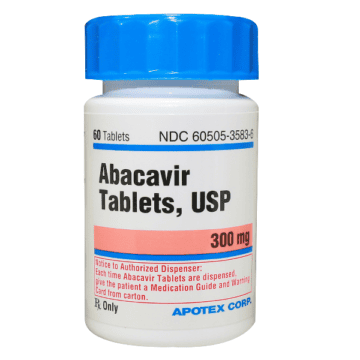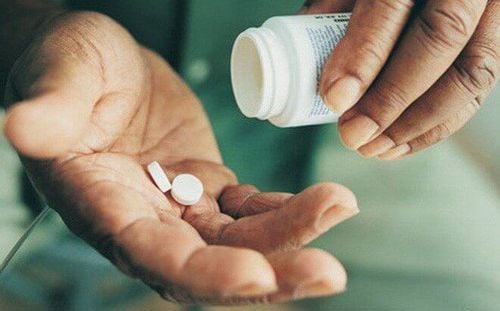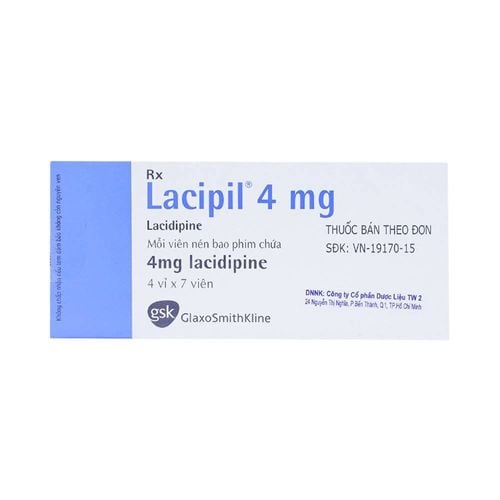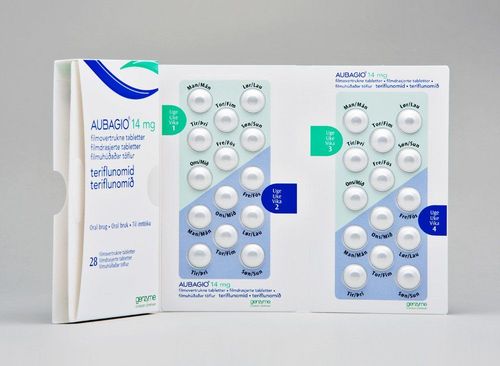This is an automatically translated article.
Nisoldipine is used alone or in combination with other medicines to treat high blood pressure. Lowering blood pressure in hypertensive patients helps prevent strokes, heart attacks, and kidney problems. Nisoldipine is called a calcium channel blocker, it works by dilating blood vessels so blood can flow more easily.1. Indications and contraindications of Nisoldipine
Nisoldipine is indicated in the treatment of:High blood pressure Nisoldipine is contraindicated in the following cases:
Severe heart artery disease Chronic heart failure Low blood pressure Severe liver disease 2. How to use Nisoldipine Take Nisoldipine with orally, usually once daily or as directed by your doctor. This medicine should be taken on an empty stomach or with a low-fat meal. Do not take within 1 hour before or 2 hours after a high-fat meal, as doing so may increase side effects.
Do not crush or chew Nisoldipine, as this can release all the medicine at once, increasing the risk of side effects. Also, do not split Nisoldipine tablets unless they are marked and your doctor tells you to do so.
Nisoldipine comes in different long-acting forms with different concentrations. Check with your doctor to know that you are taking the correct dosage and form. Do not take another medicine or a different dosage form without consulting your doctor first.
Avoid eating grapefruit or drinking grapefruit juice while using Nisoldipine, unless your doctor directs you otherwise. Because grapefruit can increase the amount of medicine in your blood.
Your dose of Nisoldipine is calculated by your doctor based on your medical condition and response to treatment. Your doctor may gradually increase your dose, so follow your doctor's instructions carefully.
Use Nisoldipine regularly to get the most benefit from it. To help you remember to take your medication, take it at the same time each day. Keep using Nisoldipine even if you feel well.
Do not share Nisoldipine with other people. Talk to your doctor about lifestyle changes that may help this medicine work better, such as stress reduction measures, or exercise and dietary changes.
Laboratory tests and/or medical tests such as liver function tests, heart exams, blood pressure measurements may be performed periodically to monitor your progress or check for side effects when using Nisoldipine.
Check your blood pressure regularly while taking Nisoldipine. Learn how to self-monitor your blood pressure at home and share test results with your doctor.
Tell your doctor if your condition does not improve or if it worsens such as high blood pressure after treatment with Nisoldipine.
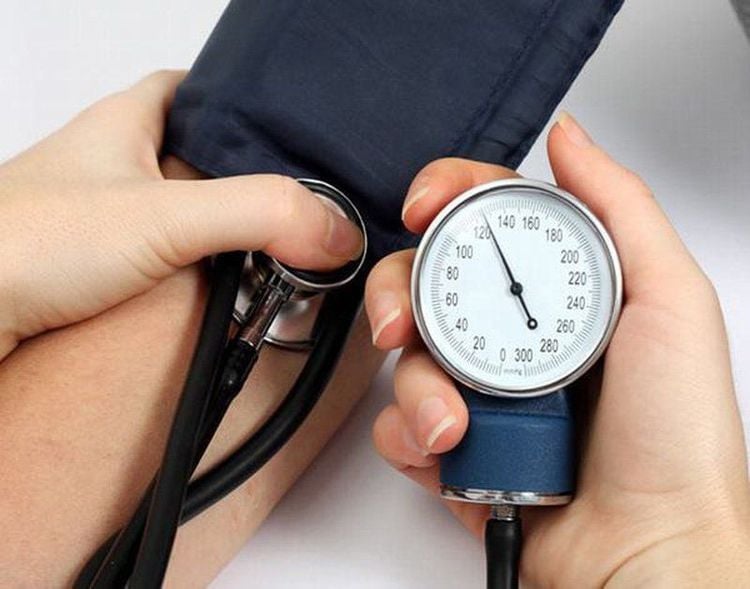
Thuốc Nisoldipine được chỉ định trong điều trị huyết áp cao
3. Nisoldipine side effects
While using Nisoldipine, you may feel dizzy, swollen ankles/feet, flushed, or have a headache. If any of these side effects persist or get worse, tell your doctor right away.To reduce dizziness and lightheadedness while using Nisoldipine, get up slowly when getting up from a sitting or lying position.
If an empty capsule appears in your stool, this is also a harmless effect because your body has already absorbed the medicine.
Remember that your doctor has prescribed this medicine for you because he or she has judged that the benefit to you is greater than the risk of side effects. Many people use Nisoldipine without any serious side effects.
Tell your doctor right away if you have any serious side effects of Nisoldipine, including: Fast/irregular/pounding heartbeat, fainting, vision changes.
Some people who already have severe heart disease may rarely have chest pain or a heart attack that gets worse after starting nisoldipine or increasing the dose. However, get medical help right away if you experience any of the following: Chest pain that gets worse, symptoms of a heart attack such as chest/jaw/left arm pain, unusual sweating , shortness of breath,.
A very serious allergic reaction to Nisoldipine is very rare. However, if you notice any symptoms of a serious allergic reaction to Nisoldipine, including: Rash, itching/swelling (especially of the face/tongue/throat), trouble breathing, dizziness serious, get medical help right away.
Below are Nisoldipine side effects by likelihood.
Common side effects of Nisoldipine include:
Water retention in the legs and hands. Headache

Đau đầu là một trong các tác dụng phụ thường gặp của thuốc Nisoldipine
Worsening of angina. Low blood pressure Skin rash Chest tightness Sore throat Inflammation of the lining of the sinuses Dizziness Heart pounding Nausea Rare side effects of Nisoldipine include:
Thyroiditis Diabetes Low blood potassium Anemia White blood count low bridged retinal detachment Glaucoma Inflammation of the cornea and conjunctiva of the eye A heart attack Supraventricular tachycardia Atrial fibrillation Premature heart failure Chronic heart failure Stroke Cerebral ischemia Orthostatic hypotension Fluid drainage into the lungs Overgrown gums Inflammation of the large intestine Stomach or intestinal bleeding Skin rash with peeling Inflammation Myositis Shortness of breath Chest tightness Enlarged liver Angioedema Drug hypersensitivity reactions Peripheral venous insufficiency Macular rash Atrioventricular block level 1 Cellulitis Fast palpitations Confusion Change in sexual interest Depression Lazy eyes Vision changes Pink eyes Blepharitis Excessive tearing Eye irritation Middle ear infection Ringing in the ear Earache Bruising under the skin Laryngitis Nasal congestion and runny nose Asthma Dry mouth Tongue sores are swollen, painful, or red. Gastritis Indigestion Inability to have an erection Vaginitis Bleeding unrelated to menstruation Dermatitis Itching Hair Loss Acne Dry skin Leech nest Skin color change Arthritis Arthritis Tendonitis Muscle pain Leg cramps Drowsiness Memory loss Fainting Feeling lightheadedness Difficulty sleeping Fever Excessive sweating Chills Muscle tremors Loss of taste Loss of muscle coordination Numbness Puffy face due to water retention Purple pinhead-like spots on the skin Decrease appetite Gain weight Loss weight Increased hunger Nose bleeding Cough Difficulty swallowing Stomach bloating Diarrhea Difficult or painful urination Increased need to urinate often Night urination Abnormal liver function tests Anxiety Tingling sensation in the skin Irritability Unusual dreams This is not a complete list of the possible side effects of Nisoldipine. If you notice other side effects of Nisoldipine not listed above, contact your doctor for proper handling.

Nếu bạn nhận thấy các tác dụng phụ khác của Nisoldipine hãy liên hệ với bác sĩ của bạn
4. Measures to prevent side effects of Nisoldipine
Before taking nisoldipine, tell your doctor if you are allergic to this medicine or to other dihydropyridine calcium channel blockers (such as amlodipine, nifedipine) and to any other allergies, if any. Nisoldipine products may contain ineffective ingredients that can cause allergic reactions or other problems.Before using Nisoldipine, tell your doctor your medical history, especially of: Certain structural heart problems (coarctation of the aorta), liver disease.
Nisoldipine can make you dizzy and alcohol and marijuana can make you more dizzy. You should therefore not drive, use machines, or do anything that requires alertness while using Nisoldipine, until you can do so safely.
Before surgery, tell your doctor or dentist that you are being treated with Nisoldipine.
For women during pregnancy, Nisoldipine should be used only when clearly needed. Talk to your doctor about the risks and benefits of the drug for you.
Currently, we do not know if Nisoldipine passes into breast milk. It is best for women who are breastfeeding to consult a doctor before use.
5. Nisoldipine drug interactions
Drug interactions can change the way nisoldipine works or increase your risk of serious side effects. Tell your doctor about all prescription/nonprescription drugs and herbal products you use. Do not start, stop, or change the dose of any medicine during treatment with Nisoldipine, without your doctor's approval.Other drugs may affect the removal of nisoldipine from your body, which may affect how nisoldipine works. These include cimetidine, azole antifungals (such as itraconazole, ketoconazole), rifamycins (such as rifabutin), macrolide antibiotics (such as erythromycin), St. John's wort, medicines used to treat seizures (such as carbamazepine, phenytoin), and others.

Tương tác thuốc có thể thay đổi cách hoạt động của thuốc Nisoldipine
6. What to do if you overdose or forget to take Nisoldipine?
If you or someone else has overdosed on Nisoldipine and has severe symptoms such as fainting or difficulty breathing, call 911 immediately.If you miss a dose of Nisoldipine, take it as soon as you remember. If it is almost time for your next dose, skip the missed dose. Take your next dose of Nisoldipine at the usual time, do not double the usual dose.
7. How to store Nisoldipine
Store Nisoldipine at room temperature, away from light and moisture, do not store in the bathroom, keep it away from children and pets. Dispose of the Nisoldipine product appropriately when it has expired or is no longer needed by you.Please dial HOTLINE for more information or register for an appointment HERE. Download MyVinmec app to make appointments faster and to manage your bookings easily.
Reference source: webmd.com



